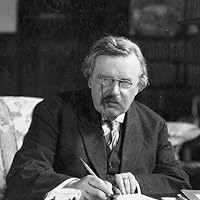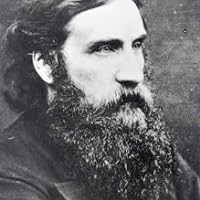Reformation Quotes
Quotes tagged as "reformation"
Showing 1-30 of 136
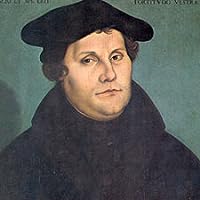
“Since then your sere Majesty and your Lordships seek a simple answer, I will give it in this manner, neither horned nor toothed. Unless I am convinced by the testimony of the Scriptures or by clear reason (for I do not trust either in the pope or in councils alone, since it is well known that they have often erred and contradicted themselves), I am bound by the Scriptures I have quoted and my conscience is captive to the Word of God. I cannot and I will not recant anything, since it is neither safe nor right to go against conscience. May God help me. Amen."
(Reply to the Diet of Worms, April 18, 1521)”
― Luther's Works: Career of the Reformer III
(Reply to the Diet of Worms, April 18, 1521)”
― Luther's Works: Career of the Reformer III

“There was just such a man when I was young—an Austrian who invented a new way of life and convinced himself that he was the chap to make it work. He tried to impose his reformation by the sword, and plunged the civilized world into misery and chaos. But the thing which this fellow had overlooked, my friend, was that he had a predecessor in the reformation business, called Jesus Christ. Perhaps we may assume that Jesus knew as much as the Austrian did about saving people. But the odd thing is that Jesus did not turn the disciples into storm troopers, burn down the Temple at Jerusalem, and fix the blame on Pontius Pilate. On the contrary, he made it clear that the business of the philosopher was to make ideas available, and not to impose them on people.”
― The Once and Future King
― The Once and Future King
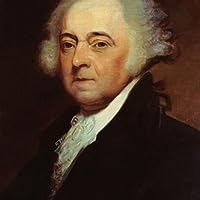
“...Turn our thoughts, in the next place, to the characters of learned men. The priesthood have, in all ancient nations, nearly monopolized learning. Read over again all the accounts we have of Hindoos, Chaldeans, Persians, Greeks, Romans, Celts, Teutons, we shall find that priests had all the knowledge, and really governed all mankind. Examine Mahometanism, trace Christianity from its first promulgation; knowledge has been almost exclusively confined to the clergy. And, even since the Reformation, when or where has existed a Protestant or dissenting sect who would tolerate a free inquiry? The blackest billingsgate, the most ungentlemanly insolence, the most yahooish brutality is patiently endured, countenanced, propagated, and applauded. But touch a solemn truth in collision with a dogma of a sect, though capable of the clearest proof, and you will soon find you have disturbed a nest, and the hornets will swarm about your legs and hands, and fly into your face and eyes.
[Letters to John Taylor, 1814, XVIII, p. 484]”
― The Letters of John and Abigail Adams
[Letters to John Taylor, 1814, XVIII, p. 484]”
― The Letters of John and Abigail Adams
“Scholars have argued that without humanism the Reformation could not have succeeded, and it is certainly difficult to imagine the Reformation occurring without the knowledge of languages, the critical handling of sources, the satirical attacks on clerics and scholastics, and the new national feeling that a generation of humanists provided. On the other hand, the long-term success of the humanists owed something to the Reformation. In Protestant schools and universities classical culture found a permanent home. The humanist curriculum, with its stress on languages and history, became a lasting model for the arts curriculum.”
― The Age of Reform 1250-1550: An Intellectual and Religious History of Late Medieval and Reformation Europe
― The Age of Reform 1250-1550: An Intellectual and Religious History of Late Medieval and Reformation Europe

“For Christians to influence the world with the truth of God's Word requires the recovery of the great Reformation doctrine of vocation. Christians are called to God's service not only in church professions but also in every secular calling. The task of restoring truth to the culture depends largely on our laypeople.
To bring back truth, on a practical level, the church must encourage Christians to be not merely consumers of culture but makers of culture. The church needs to cultivate Christian artists, musicians, novelists, filmmakers, journalists, attorneys, teachers, scientists, business executives, and the like, teaching its laypeople the sense in which every secular vocation-including, above all, the callings of husband, wife, and parent--is a sphere of Christian ministry, a way of serving God and neighbor that is grounded in God's truth. Christian laypeople must be encouraged to be leaders in their fields, rather than eager-to-please followers, working from the assumptions of their biblical worldview, not the vapid clichés of pop culture.”
―
To bring back truth, on a practical level, the church must encourage Christians to be not merely consumers of culture but makers of culture. The church needs to cultivate Christian artists, musicians, novelists, filmmakers, journalists, attorneys, teachers, scientists, business executives, and the like, teaching its laypeople the sense in which every secular vocation-including, above all, the callings of husband, wife, and parent--is a sphere of Christian ministry, a way of serving God and neighbor that is grounded in God's truth. Christian laypeople must be encouraged to be leaders in their fields, rather than eager-to-please followers, working from the assumptions of their biblical worldview, not the vapid clichés of pop culture.”
―

“If anyone attempted to rule the world by the gospel and to abolish all temporal law and sword on the plea that all are baptized and Christian, and that, according to the gospel, there shall be among them no law or sword - or need for either - pray tell me, friend, what would he be doing? He would be loosing the ropes and chains of the savage wild beasts and letting them bite and mangle everyone, meanwhile insisting that they were harmless, tame, and gentle creatures; but I would have the proof in my wounds. Just so would the wicked under the name of Christian abuse evangelical freedom, carry on their rascality, and insist that they were Christians subject neither to law nor sword, as some are already raving and ranting.
To such a one we must say: Certainly it is true that Christians, so far as they themselves are concerned, are subject neither to law nor sword, and have need of neither. But take heed and first fill the world with real Christians before you attempt to rule it in a Christian and evangelical manner. This you will never accomplish; for the world and the masses are and always will be unchristian, even if they are all baptized and Christian in name. Christians are few and far between (as the saying is). Therefore, it is out of the question that there should be a common Christian government over the whole world, or indeed over a single country or any considerable body of people, for the wicked always outnumber the good. Hence, a man who would venture to govern an entire country or the world with the gospel would be like a shepherd who should put together in one fold wolves, lions, eagles, and sheep, and let them mingle freely with one another, saying, “Help yourselves, and be good and peaceful toward one another. The fold is open, there is plenty of food. You need have no fear of dogs and clubs.” The sheep would doubtless keep the peace and allow themselves to be fed and governed peacefully, but they would not live long, nor would one beast survive another.
For this reason one must carefully distinguish between these two governments. Both must be permitted to remain; the one to produce righteousness, the other to bring about external peace and prevent evil deeds. Neither one is sufficient in the world without the other. No one can become righteous in the sight of God by means of the temporal government, without Christ's spiritual government. Christ's government does not extend over all men; rather, Christians are always a minority in the midst of non-Christians. Now where temporal government or law alone prevails, there sheer hypocrisy is inevitable, even though the commandments be God's very own. For without the Holy Spirit in the heart no one becomes truly righteous, no matter how fine the works he does. On the other hand, where the spiritual government alone prevails over land and people, there wickedness is given free rein and the door is open for all manner of rascality, for the world as a whole cannot receive or comprehend it. ”
― Luther and Calvin on Secular Authority
To such a one we must say: Certainly it is true that Christians, so far as they themselves are concerned, are subject neither to law nor sword, and have need of neither. But take heed and first fill the world with real Christians before you attempt to rule it in a Christian and evangelical manner. This you will never accomplish; for the world and the masses are and always will be unchristian, even if they are all baptized and Christian in name. Christians are few and far between (as the saying is). Therefore, it is out of the question that there should be a common Christian government over the whole world, or indeed over a single country or any considerable body of people, for the wicked always outnumber the good. Hence, a man who would venture to govern an entire country or the world with the gospel would be like a shepherd who should put together in one fold wolves, lions, eagles, and sheep, and let them mingle freely with one another, saying, “Help yourselves, and be good and peaceful toward one another. The fold is open, there is plenty of food. You need have no fear of dogs and clubs.” The sheep would doubtless keep the peace and allow themselves to be fed and governed peacefully, but they would not live long, nor would one beast survive another.
For this reason one must carefully distinguish between these two governments. Both must be permitted to remain; the one to produce righteousness, the other to bring about external peace and prevent evil deeds. Neither one is sufficient in the world without the other. No one can become righteous in the sight of God by means of the temporal government, without Christ's spiritual government. Christ's government does not extend over all men; rather, Christians are always a minority in the midst of non-Christians. Now where temporal government or law alone prevails, there sheer hypocrisy is inevitable, even though the commandments be God's very own. For without the Holy Spirit in the heart no one becomes truly righteous, no matter how fine the works he does. On the other hand, where the spiritual government alone prevails over land and people, there wickedness is given free rein and the door is open for all manner of rascality, for the world as a whole cannot receive or comprehend it. ”
― Luther and Calvin on Secular Authority

“The Law saith, Where is thy righteousness, goodness, and satisfaction? The Gospel saith, Christ is thy righteousness, goodness, and satisfaction.”
―
―
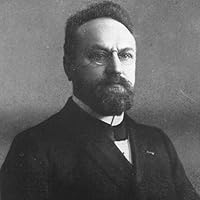
“Manifest in this trade (commercial sale of indulgences via bankers) at the same time was a pernicious tendency in the Roman Catholic system, for the trade in indulgences was not an excess or an abuse but the direct consequence of the nomistic degradation of the gospel. That the Reformation started with Luther’s protest against this traffic in indulgences proves its religious origin and evangelical character. At issue here was nothing less than the essential character of the gospel, the core of Christianity, the nature of true piety. And Luther was the man who, guided by experience in the life of his own soul, again made people understand the original and true meaning of the gospel of Christ. Like the “righteousness of God,” so the term “penitence” had been for him one of the most bitter words of Holy Scripture. But when from Romans 1:17 he learned to know a “righteousness by faith,” he also learned “the true manner of penitence.” He then understood that the repentance demanded in Matthew 4:17 had nothing to do with the works of satisfaction required in the Roman institution of confession, but consisted in “a change of mind in true interior contrition” and with all its benefits was itself a fruit of grace. In the first seven of his ninety-five theses and further in his sermon on “Indulgences and Grace” (February 1518), the sermon on “Penitence” (March 1518), and the sermon on the “Sacrament of Penance” (1519), he set forth this meaning of repentance or conversion and developed the glorious thought that the most important part of penitence consists not in private confession (which cannot be found in Scripture) nor in satisfaction (for God forgives sins freely) but in true sorrow over sin, in a solemn resolve to bear the cross of Christ, in a new life, and in the word of absolution, that is, the word of the grace of God in Christ. The penitent arrives at forgiveness of sins, not by making amends (satisfaction) and priestly absolution, but by trusting the word of God, by believing in God’s grace. It is not the sacrament but faith that justifies. In that way Luther came to again put sin and grace in the center of the Christian doctrine of salvation. The forgiveness of sins, that is, justification, does not depend on repentance, which always remains incomplete, but rests in God’s promise and becomes ours by faith alone.”
―
―
“All that is deformed ought to be reformed. The Word of God alone teaches us what ought to be so, and all reform effected otherwise is vain.”
―
―
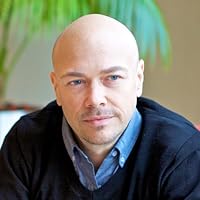
“The Constitution itself, the DNA of the country, can be altered by the collective will of the people, making America a self-evolving and self-writing program.”
― Voice of Reason
― Voice of Reason

“… as to the better centuries that are coming, the artist was surely right. His error lay, in supposing that his age, more than any past or future one, is destined to see the tattered garments of Antiquity exchanged for a new suit, instead of gradually renewing themselves by patchwork…”
― The House of the Seven Gables
― The House of the Seven Gables
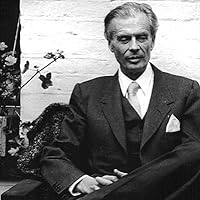
“You've got to be good before you can do good - or at any rate do good without doing harm at the same time. Helping with one hand and hurting with the other - that's what the ordinary reformer does.”
― Time Must Have a Stop
― Time Must Have a Stop
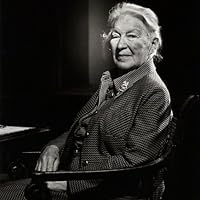
“History is lived forwards but it is written in retrospect. We know the end before we consider the beginning and we can never wholly recapture what it was to know the beginning only.”
― William the Silent: William of Nassau, Prince of Orange 1533-1584
― William the Silent: William of Nassau, Prince of Orange 1533-1584

“don't trust renewals of the human race when curias and courts speak of them.”
― The Name of the Rose
― The Name of the Rose
“Too often historians, beguiled by the theories of anthropologists and sociologists, fascinated by the possibilities of their theoretical categories, have forgotten that the Reformation was the result of a quarrel about faith and salvation.”
― The Culture of Protestantism in Early Modern Scotland
― The Culture of Protestantism in Early Modern Scotland

“Here we stand, God’s word alone
Our solid rock and stay.
For only in that word is shown
The true and living way.”
―
Our solid rock and stay.
For only in that word is shown
The true and living way.”
―

“Get into your heart more of that good Bible. It will give you light.”
― Heralds of the Reformation: Thirty Biographies of Sheer Grace
― Heralds of the Reformation: Thirty Biographies of Sheer Grace
“Catholic gossip and folklore, as one might term it, contributed to this demonizing legend around the conflict with the Protestants. At Geila in Brabant it was reported that the demons suddenly left all the possessed people, so that they could attend Luther's funeral[...] At St. Medard's Church in Paris the Calvinist iconoclasts allegedly broke all the winfows except that 'in gratitude' they left one which showed a red devil. In several other places, including St. Paul's in London, iconoclastic mobs left only depictions of devils untouched.”
― Enchanted Europe: Superstition, Reason, and Religion, 1250-1750
― Enchanted Europe: Superstition, Reason, and Religion, 1250-1750
“One of Gunter’s fears was that the Bible was a ‘policy’, a deliberately manipulative hoax. This venerable theme, revived by Machiavelli, now seemed more compelling than ever. During the Reformation age, Christendom had been splintered into national churches closely controlled by secular governments – none more so than the Church of England. Apparently God’s eternal truth changed when you crossed a border, or on the whims of kings and queens. Bishop Earle’s ‘sceptic’ was ‘troubled at this naturalness of Religion to Countries, that Protestantism should be born so in England, and Popery abroad’. What if we only believe what we believe out of chauvinism and habit? A popular advice-book warned young Englishmen travelling to the Continent against sampling foreign churches, fearing not so much that they would convert as that they would conclude that all churches had good points and bad points, ‘and so, displeased on all sides, you dash upon the rock of Atheism’ – a fate to which those who had ‘seen many countries’ were proverbially prone. Even if you did not give ‘perfect credit’ to another religion, merely to ‘admit of a suspicion that things may be’ as others say was to set the woodworm to work.”
― Unbelievers: An Emotional History of Doubt
― Unbelievers: An Emotional History of Doubt
“If the “Cartesian moment” is that moment when as Francis Barker has asserted the self can be conceived of without the body, it is also the moment when it can be conceived of without ritual; by what might be called a Cartesian logic, the later English Reformation places efficacious signs of salvation elsewhere than church ritual, first in a literalist reading of Scripture, and ultimately in the individual conviction of the particular truths of Scripture and in the self who experiences it”
― Rituals of Spontaneity: Sentiment and Secularism from Free Prayer to Wordsworth
― Rituals of Spontaneity: Sentiment and Secularism from Free Prayer to Wordsworth
“As William Bouwsma pointed out, the late medieval and early Renaissance crises of representation did not stall out at their skepticism of the old systems but rather progressed to an even more urgent defense of objective boundaries and quantifiable truths. In “The Secularization of Language in the Seventeenth Century,” Margreta de Grazia has shown how this pursuit of certainty led to a skepticism about language itself that dissociated words from God and deverbalized God’s message, prompting thinkers from Thomas Sprat of the Royal Society to Hobbes, Robert Hooke, Galileo, and Newton to seek certainty in mathematical knowledge; quantifiable, identifiable substances; and trial, experiment, and experience. As Puritan propagandist Vavasor Powell put it in the middle of the seventeenth century, “Experience is like steel to an edged tool, or like salt to fresh meat, it seasons brain- knowledge, and settles a shaking unsetled soule.” Paralleling more secular quests for certainty, the Puritan quest for grounding religious knowledge in a literalist reading of Scripture focused ever more intensely on manifest, genuine experience confirming salvation and the personal application of scriptural truth. The spontaneous “pouring out of the heart” in prayer was just such an evidentiary experience.”
― Rituals of Spontaneity: Sentiment and Secularism from Free Prayer to Wordsworth
― Rituals of Spontaneity: Sentiment and Secularism from Free Prayer to Wordsworth
“Davie's hostility to sectarianism, and to religious 'fanaticism', was perhaps part of his appeal. He acknowledged the legacy of Calvinism in his interpretation of the Enlightenment and democratic intellectualism, and continued to argue that the distinctive blend of religion, law and education was Scotland's special contribution to civilisation. But by the 1950s and 1960s, the Church of Scotland and its ministers were widely regarded in intellectual circles as a repressive force, morally censorious and culturally philistine. Davie's work, it may be suggested, was attractive to the youthful intelligentsia created by post-war university expansion. Before the war, most Scottish graduates had gone into the professions, the civil service, or school teaching. But now there were new career fields in the media, politics, and college teaching which promoted a less conformist attitude. The Reformation had long been seen as the basis for Scotland's identity and its cultural difference from England, but Davie offered a version of Scottish identity which substituted a secular intellectualism for the well-worn themes of Calvinism and John Knox, and made no appeal, either, to Kailyard sentimentality. Davie became a cult figure for journals like Cencrastus and the New Edinburgh Review, to which he contributed himself.”
― Writing Scottishness: Literature and the Shaping of Scottish National Identities
― Writing Scottishness: Literature and the Shaping of Scottish National Identities

“How can a reformation of the whole people be brought about if it is common knowledge that the Church itself is bent only on self-preservation and restoration--or not even that?”
― Community, State and Church: Three Essays
― Community, State and Church: Three Essays

“Most of us have been deeply shaped by the false notion that in order for people to behave better they need to feel worse and be punished. In practice, we see that humans are, in fact, far more likely to change in desirable ways when they are more resourced, not less.”
― Beyond Survival: Strategies and Stories from the Transformative Justice Movement
― Beyond Survival: Strategies and Stories from the Transformative Justice Movement
All Quotes
|
My Quotes
|
Add A Quote
Browse By Tag
- Love Quotes 97k
- Life Quotes 75.5k
- Inspirational Quotes 72.5k
- Humor Quotes 43.5k
- Philosophy Quotes 29.5k
- Inspirational Quotes Quotes 27k
- God Quotes 26k
- Truth Quotes 23.5k
- Wisdom Quotes 23.5k
- Romance Quotes 23k
- Poetry Quotes 22k
- Death Quotes 20k
- Happiness Quotes 18.5k
- Life Lessons Quotes 18.5k
- Hope Quotes 18k
- Faith Quotes 18k
- Quotes Quotes 16.5k
- Inspiration Quotes 16.5k
- Spirituality Quotes 15k
- Religion Quotes 15k
- Motivational Quotes 15k
- Writing Quotes 14.5k
- Relationships Quotes 14.5k
- Life Quotes Quotes 14k
- Love Quotes Quotes 13.5k
- Success Quotes 13.5k
- Time Quotes 12.5k
- Motivation Quotes 12k
- Science Quotes 11.5k
- Knowledge Quotes 11k

